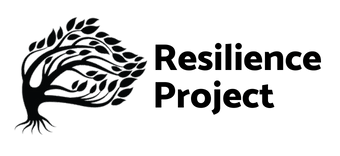Recently Added
Tags
2020 Webinar
2021 Webinar
Climate
climate change
collapse
community resilience
conflict
COVID-19
Ecology
Economics
education
energy
Engery Systems
enviromental sustainablity
Featured
Featured Video
food systems
Geo Politics
Ghastly Response Discussion
Joan Diamond
Kim Stanley Robinson
landscape
Michael Lerner
Michael Webber
Nate Hagens
nongovernmental organization
Paul Ehrlich
Pete Myers
Population
portrait
Post Carbon Institue
Power Grid
Raphaël Stevens
resilience
resource
Richard Hienberg
Russel Chisholm
Shanna H. Swan
Social Systems
Storms
Texas
The Cascade Institute
Thomas Homer-Dixon
Underestimating the Challenges of Avoiding a Ghastly Future
website

Joanna Macy: The Resilience Gathering
in VideoIn this talk given at The Resilience Gathering, Joanna Macy guides us how to suffer with the world and make responsible decisions that take into account our interconnectedness with all that is.
The Upside of Down: Catastrophe, Creativity, and the Renewal of Civilization
in BooksThe Upside of Down by Thomas Homer-Dixon takes the reader on a mind-stretching tour of societies’ management, or mismanagement, of disasters over time. From the demise of ancient Rome to contemporary climate change, this book analyzes what happens when multiple crises compound to cause what the author calls “synchronous failure.” But crisis doesn’t have to mean total calamity. Through catagenesis, or creative, bold reform in the wake of breakdown, it is possible to
reinvent our future.
The Uninhabitable Earth
in BooksThe Uninhabitable Earth by David Wallace-Wells brings into stark relief the climate troubles that await. Without a revolution in how billions of humans conduct their lives, parts of the Earth could become close to uninhabitable, and other parts horrifically inhospitable, as soon as the end of this century.
Falter: Has the Human Game Begun to Play Itself Out?
in BooksBill McKibben’s Falter tells the story of converging trends—global warming, new technologies like artificial intelligence and robotics—and of the ideological fervor that keeps us from bringing them under control.
Why it’s time to think about human extinction
in VideoIn this video episode of Unstoppable, environmentalist, activist, professor of genetics and science broadcaster David Suzuki hits us with some home truths about what our future will look like if we continue to live the way we have been.
Surviving the Future: Culture, Carnival and Capital in the Aftermath of the Market Economy
in BooksSurviving the Future by David Fleming and Shaun Chamberlin lays out a compelling and powerfully different new economics for a post-growth world. One that relies not on taut competitiveness and eternally increasing productivity—“putting the grim into reality”—but on the play, humor, conversation, and reciprocal obligations of a rich culture.
Viewpoint: Be Prepared
in ArticlesThis article from provides the historical context of the Church of Jesus Christ of Latter-Day Saints directive to members to learn and prepare “to sustain yourselves and store extra for a time of need or adversity.” Church members have many times provided food for their own families and others across the globe in times of crisis and shortage. This article advises, “We too will be blessed as we follow the prophetic direction to be prepared.”
Transition United States
in GroupTransition US is a nonprofit organization that provides inspiration, encouragement, support, networking, and training for Transition Initiatives across the United States. We are working in close partnership with the Transition Network, a UK-based organization that supports the international Transition Movement as a whole.
Resilience, the Global Challenge, and the Human Predicament
in ArticlesIn this article in Kosmos, Michael Lerner writes: We face a perfect storm of environmental, social, technological, economic, geopolitical and other global stressors. These global stressors interact in unpredictable ways. The pace of future shocks is increasing. The prospect for civilizational collapse is real. We need to build meaningful resilience.
Post Carbon Institute
in WebsiteFounded in 2003, Post Carbon Institute’s mission is to lead the transition to a more resilient, equitable, and sustainable world by providing individuals and communities with the resources needed to understand and respond to the interrelated ecological, economic, energy, and equity crises of the 21st century.